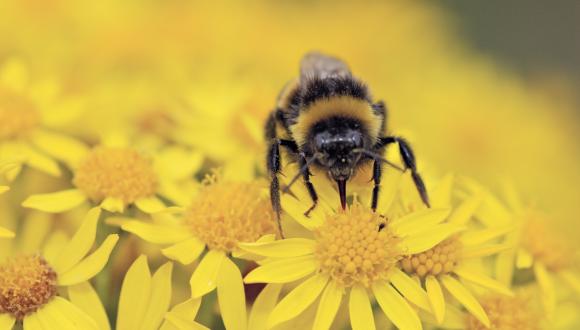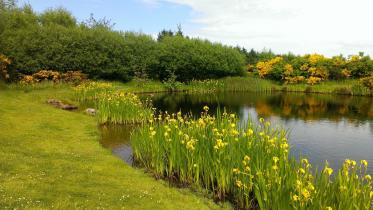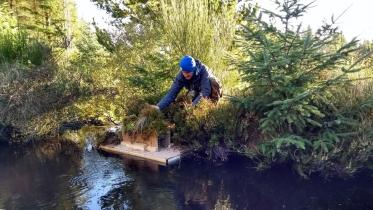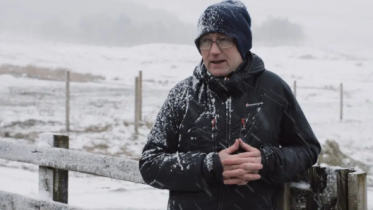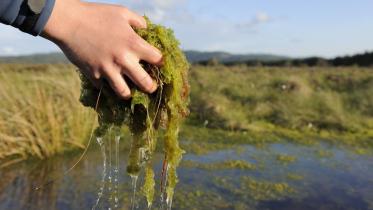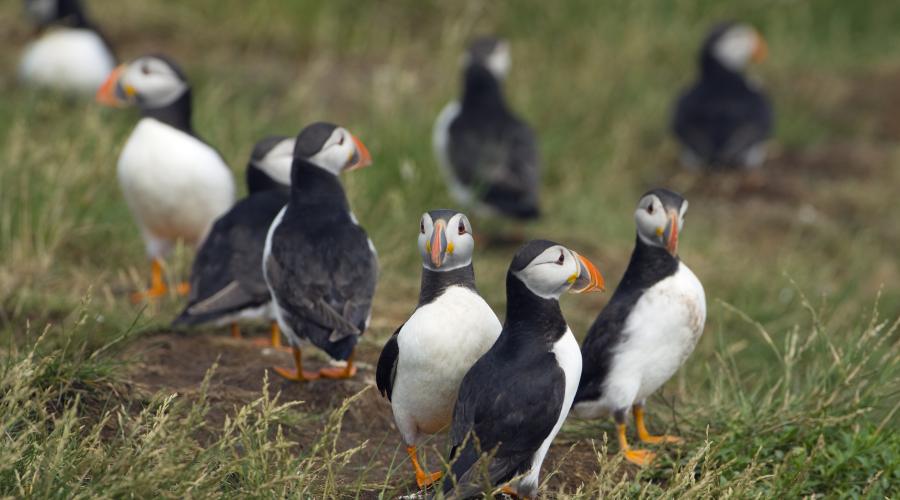
Edinburgh biodiversity projects share £450k Nature fund cash
19 August 2019
Three nature projects will share almost half a million pounds to create better homes for wildlife in Edinburgh. The projects are among the recipients of NatureScot’s (NatureScot’s) Biodiversity Challenge Fund.
Buglife’s Central Scotland B-Lines project will create a coast-to-coast network of special places for nature; the Edinburgh Shoreline project focuses on wildlife close to the coast; and the Little France Park Project will breathe new life into an unmanaged urban greenspace. Each project has been awarded around £150k.
Central Scotland B-Lines will create 100 hectares of wildflower habitat across 50 urban sites, connecting East Dunbartonshire, South Lanarkshire, Falkirk and Edinburgh, helping pollinators to move freely through towns and cities. Local community groups will take on ownership of each site. The project includes training in areas such as managing and monitoring of local sites, and how to increase habitat connectivity across the Central Belt.
Edinburgh Shoreline’s project will improve breeding areas for puffins by removing invasive non-native species, such as tree mallow, and create eight new coastal wildflower meadows to link up with existing sites and help pollinators to travel around.
Little France Park will be brought to life by the Edinburgh and Lothians Greenspace Trust’s project. It will transform the site and create a corridor for nature from the centre of Edinburgh to Midlothian. As well as improving the 46 hectare park’s existing habitats, such as hedges, scrub and grassland, a network of new habitats will be created, targeted at butterflies, including the northern brown argus, common blue and small copper.
Suzanne Burgess, Buglife’s Scotland Manager, said: “We’re delighted that our ground-breaking, landscape-scale project has received this funding from NatureScot. We’re now really looking forward to working with our partners, fantastic volunteers and local communities in Edinburgh and the other project areas to try and halt the decline in Scotland’s vital pollinating insects.”
Along with climate change, nature – and biodiversity loss – is also a global and generational threat to human well-being. However, enhancing our nature is also recognised as being part of the solution to the climate emergency.
These projects are three of 14 successful applicants across Scotland to share the £1.8 million Biodiversity Challenge Fund over a two-year period The funding will support large-scale projects that aim to deliver rapid change on the ground to help our most at-risk habitats and species, including mammals and birds, connect existing nature reserves and tackle non-native invasive species.
Minister for Rural Affairs and the Natural Environment, Mairi Gougeon, announced the awards on a visit to one of the successful projects in Edinburgh in June. She said: “I am delighted that, through the Biodiversity Challenge Fund, the Scottish Government and NatureScot can support these fantastic projects across the country to safeguard some of our most vulnerable species and habitats, and protect them from invasive species. Their success will play a crucial role in our efforts to improve nature and help Scotland meet its international biodiversity commitments.”
NatureScot Chief Executive, Francesca Osowska, said: “Climate change is one of the key drivers of nature loss – but it’s not too late to act. In fact, improving nature is also one of the solutions to the climate emergency.
“There are five areas we need to focus on to improve biodiversity – restoring our habitats, changing our use of the land and sea, reducing pollution and climate change and tackling invasive non-native species. These projects will improve nature across Scotland for all our benefit.
“We know we have a big task before us but we have been working for years with our partners to meet international nature targets. We are ready to deliver the transformational change needed to bring a nature rich future for Scotland.”
